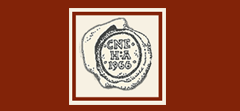Abstract
In 1766, Ebenezer Robinson, an active Quaker and middle-class tradesman, was one of the first to develop the land just north of Independence Hall, then at the edge of urban Philadelphia. Recent work on Independence Mall sponsored jointly by the National Park Service and the National Constitution Center has uncovered several features on this property, but analysis and historical documentation has suggested that a low-class tavern occupied the spot while Robinson owned it. This paper examines artifacts from a privy associated with this period of the site and compares the finds with several other sites to characterize this tavern, explore the different roles taverns played in colonial communities, and clarify the relationship of the tavern with its Quaker landlord. The study is further contextualized with a discussion of Quakerism and attitudes towards alcohol in the colonial period.
DOI
10.22191/neha/vol35/iss1/24
Recommended Citation
Chenoweth, John M.
(2006)
"“What’ll Thou Have”: Quakers and the Characterization of Tavern Sites in Colonial Philadelphia,"
Northeast Historical Archaeology:
Vol.
35
35, Article 24.
https://doi.org/10.22191/neha/vol35/iss1/24
Available at:
https://orb.binghamton.edu/neha/vol35/iss1/24

